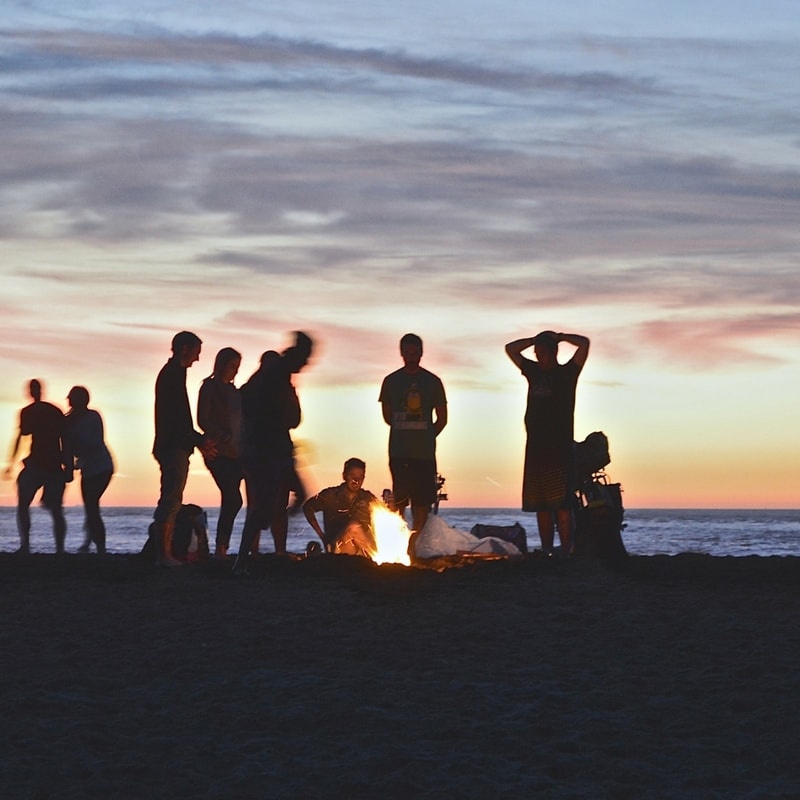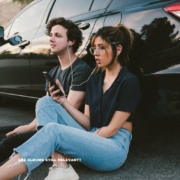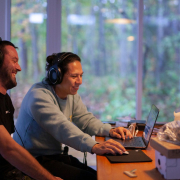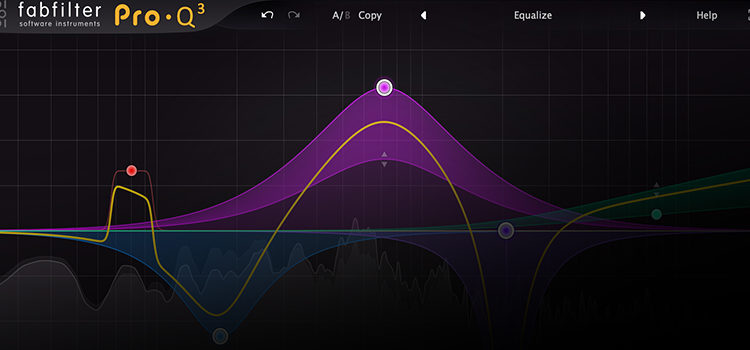It’s Time for Musicians to be Inclusive
Anyone making music regularly goes through numerous phases of wisdom. Sometimes, it can seem like the music industry is a video game, where—with some luck and networking—you can “level up” until you attain glory. Making music with this frame of mind, which many artists seem to do, produces certain unattractive behaviours:
- An unwillingness to share knowledge and contacts
- Taking a competitive approach to music
- Snobbery and arrogance towards other people and artists
New producers are often thrown-off by the attitude of established artists. Established artists do filter people for other reasons, as being completely open to everyone and everything can become draining, especially if many are trying to “use” them (i.e. for attention, feedback on music, etc). Some artists are also really bad at communicating or just shy, which makes them adopt a closed persona as a way to hide. That said, there exists a very thin line that can be crossed from filtering to snobbery.
Where Does Arrogance Among Artists Come From?
If people work hard on learning something, giving what they spent time and money to understand to someone else for “free” might seem unfair, right? People might also feel that if they’ve reached a certain status, maybe others coming up behind them might bump them out of their position.
Sharing knowledge doesn’t make you lose it.
Sometimes people also feel that opening up to someone to share valuable information and getting anything in return can be very frustrating, as it feels like a waste of energy. Or worse, sometimes there are concerns that there will be some sort of betrayal if the recipient gets “further” with the shared piece of information than the original artist did themselves. It’s not really a surprise that many artists are extremely protective, as they constantly feel like they’re at risk of being “surpassed”.
Seeing someone succeed doesn’t mean you failed.
Reality check—a music career is just a series of ups and downs, with some peaks and plateaus. You can’t escape it, it’s part of the game. It’s never related to other people’s success, it’s just organic. A music career is absolutely bipolar and extremely volatile. These conditions are conducive to feelings of hyper-vigilance, anxiety, and depression. Some people manage to reach a flow where things work longer than others—this is related to a good combo of solid networking, natural talent and a good dose of charisma. Sometimes helping other artists can actually help an artist’s career for the better.
What are the Benefits of Being Inclusive and Helping Other Artists?
While for many this might seem obvious, you’d be surprised how for many others, the idea to work with other people sounds like a bad or compromising idea. I’m not one to judge anyone’s opinion because there is indeed a big risk we need to first address: theft and knowledge abuse. Many artists are taken advantage of by labels, club promoters, Spotify or other giant takeovers in the music business, and even other artists copying or “stealing” content/ideas. Does being inclusive pose risk for these types of situations to increase?
Being inclusive is not being naive. It is—first and foremost—trying to help others, as you wished you were helped when in need.
While writing this post, most of us are in quarantine and have no idea what things will be like in the near future. Interestingly enough for me, for the last 20 years, I’ve become used to being in my studio, secluded and working remotely. I’ve done countless collaborations online and ran labels as well. But now this lifestyle is imposed on many people who aren’t used to it. Not everyone can feel comfortable in this position, even musicians. In the last two weeks, I managed some online groups through Zoom to support my community. Sessions of three hours with more than 30 participants made it clear to me that we all want to reach out to one another, and that our life is far from a dystopian movie depicting revolts and violence. I see way more creative collaboration, online performances, tons of entertainment, classes and people spending their time helping strangers. I want this to happen with music-makers as well.
During a prolonged time of inactivity such as the situation we’re in right now, many institutions, clubs, festivals, and artists will suffer losses. I see people organizing crowd-sourcing campaigns, but they don’t seem to be gaining much traction. Money is only one aspect of the problem—it’s not the real solution to this situation. Where we’ll really need help will in reaching out to one another, supporting local musicians and businesses, and cutting out this business of acting like a “music diva”—we should rethink how we work.
I would like to outline some ways of acting towards others that have been my way of life. I don’t see myself as perfect, but I try to live by these maxims. Being inclusive is something essential to my daily life.
- One thing I often do, since of course I don’t always have the time to help is that I teach people to troubleshoot their problems, find answers through efficient researching. For instance, YouTube has solution to many issues and many people ignore that.
- I give everyone a chance until they prove me otherwise. Just like in life, if someone comes to me, seems friendly and wants to chat, I’ll usually take the time to chat back. I’m always interested in getting to know others with the time I have. For the most part, people are really friendly. The great thing about an online presence is, you can take distance yourself easily if things don’t go well. But I like to give people a chance and would never snob someone unless I feel there’s a strong clashing of life values (ex. aggressive behaviour, inability to listen, excessive drug use, or anything that can put my health at risk).
- I like to be a “yes-man”. For the most part, whatever people ask me, I will do my best to say yes and answer. I’ve been told I’m too nice and that people take advantage of me, but there are a lot of people who are like that and it’s often more energy-boosting than draining. I find that having strong boundaries are essential, though.
- I invest in those who invest in me. I’ve often chased after people who I thought were cool, but from whom I wasn’t getting any attention back. I kept trying and usually ended up feeling resentful. That behaviour is in the past now for me, and I only invest myself in people who give attention back. If I send an email and there’s no follow-up, I might poke a second time, but I usually set no expectations. This has cleared up a lot of frustration towards labels who don’t reply or other artists I’ve been wanting to work with that would never reply. I now focus on people who come to me in the first place. There’s a lot more energy there.
- Listening to what people have to say teaches me one thing a day. When I do online coaching, I spend time listening to what people have to say. There’s space for learning just as much as for teaching. I believe that everyone gets to teach me something because the world of music making is too vast to claim to know it all.
- Develop trust that even when confronted with what seems like a failure, there’s something ahead that will benefit me. Sometimes I felt like some misfortunes were really bad for me personally or for my music career. It’s really impossible to foresee what’s ahead but strangely enough, when it comes to the future no one is in control; magic that can happen down the road, in ways that were impossible to imagine. Stories of missed flights, cancelled events, pirated albums and so on, have been things I went through and I could go on about, but there was always something positive that came out of those experiences. I’m not someone that believes “positive thinking” can in negative situations fixes everything, so I prefer to stay grounded and have a sense of trust that there’s something to come that will be better for me or others.
- Always put people in touch—sharing connections creates power. I’ve never ever kept contacts for myself but this is something I often see people do. I don’t see the point to keep people apart. If you can put people in contact and something happens from that, you’ve just created a channel that many people will benefit from.
- Never take anything personally—’Nuff said.
- You never know who will help you in the future. So many times, I’ve talked with some random people and years later, these people came back to me with something. Recently someone booked my services for a mix and said I gave him a CD in 2004!
- Being nice often pays more in the long run. I don’t believe that being difficult pays off in any way, and in the long term, people will avoid you if you’re unpleasant.
- Explaining is learning. This is my motto. If you can teach someone a trick, you need to know it well enough to explain it. Therefore, you’re teaching yourself how to do it again. Often, if someone doesn’t get it, you need to find other ways to explain it, which tends to help discover new opportunities in your workflow.











Leave a Reply
Want to join the discussion?Feel free to contribute!